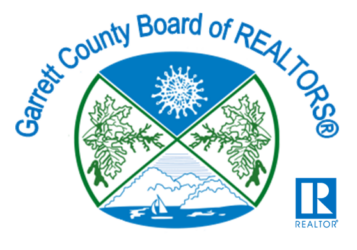Each year the Maryland State Department of Assessments and Taxation (MD SDAT) notifies each Maryland county of the tax rate that would produce the same revenue from property tax as was produced the year before.
These rates given to the local governments are known as the “Constant Yield Tax Rates” and are based on the new, net assessable property base for that jurisdiction.
Also, by state law, each year the County Governments must legally advertise – quote – “Notice of a Proposed Property Tax Increase” to comply with Constant Yield Tax regulations.
Despite the verbiage above, the Board of County Commissioners may adjust the tax rate, reduce it, or make no change.
At this time, the County Commissioners are proposing no change to the tax rate.
“The Constant Yield Rate hearing is a key aspect of the extensive budget development process,” said Paul Edwards, Chairman of the Board of County Commissioners. “One of the top priorities of the Commissioners is to consider a long-term plan for funding the ever-increasing educational mandates. Year over year, the models show nearly $15 million in additional required funding to be paid to the Board of Education over the next 10 years.”
What is the Constant Yield Tax Rate?
The Constant Yield Tax Rate is simply a property tax rate that, when applied to Maryland State assessments, will result in the taxing authority receiving the same revenue in the coming taxable year that was produced in the prior taxable year.
“The State Department of Assessments and Taxation certifies the constant yield tax rate to the County each year and they have strict requirements on the process,” said Scott Weeks, Director of Finance for the Garrett County Government. “We must comply with the language of the public notice, but the current Board of Garrett County Commissioners is recommending no change to the tax rate for the 2024 budget.”
Note, new property or construction added to the rolls for the first time is subtracted from the calculation and allowances for abatements and other deletions are deducted in arriving at the net assessable base for this purpose.
If you have questions on constant tax yield, please consider attending the public hearing at 4:00pm on May 1, 2023. The hearing will also be streamed live on Facebook at www.Facebook.com/GarrettCountyGovernment.
You may also email budget comments, until June 5, to gccomments@garrettcounty.org.
NOTICE BELOW:
The Board of County Commissioners of Garrett County, Maryland proposes to increase real property taxes.
1. For the tax year beginning July 1, 2023, the estimated real property assessable base will increase by 9.4%, from $4,630,587,098 to $5,066,121,547.
2. If Garrett County maintains the current tax rate of $1.056 per $100 of assessment, real property tax revenues will increase by 9.4% resulting in $4,599,244 of new real property tax revenues.
3. In order to fully offset the effect of increasing assessments, the real property tax rate should be reduced to $.9652, the constant yield tax rate.
4. The County is considering not reducing its real property tax rate enough to fully offset increasing assessments. The County proposes to adopt a real property tax rate of $1.056 per $100 of assessment. This tax rate is 9.4% higher than the constant yield tax rate and will generate $4,599,244 in additional property tax revenues.
A public hearing on the proposed real property tax rate increase will be held at 4:00PM on Monday, May 1, 2023, in the Garrett County Commissioners’ Public Meeting Room 209 located at 203 South Fourth Street, Oakland, Maryland 21550. The hearing is open to the public, and public testimony is encouraged.
Public comment will remain open after the hearing until the budget adoption on June 5, 2023. Persons with questions regarding this hearing may call 301-334-8970 for further information.
The assessments, revenues, and tax rates above are for Garrett County outside of the municipality of Mountain Lake Park.

